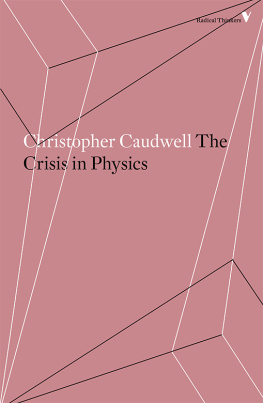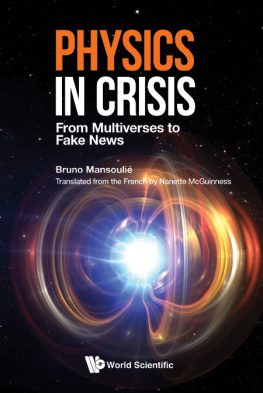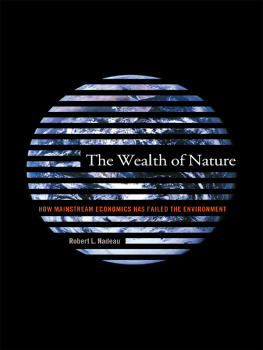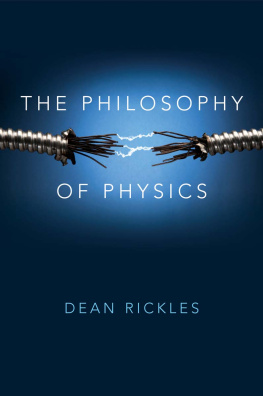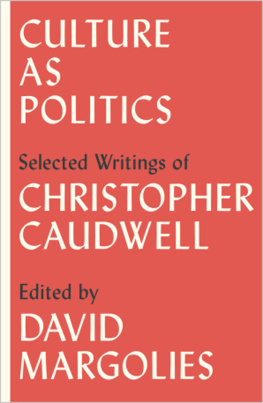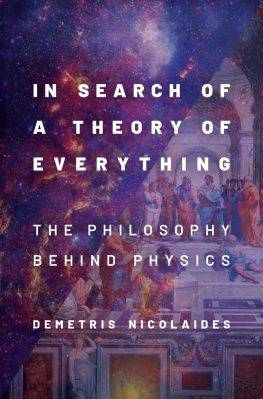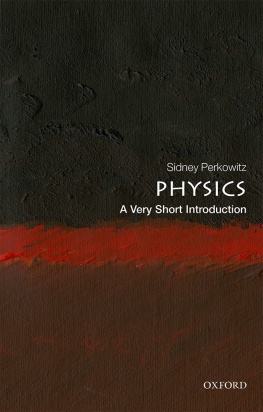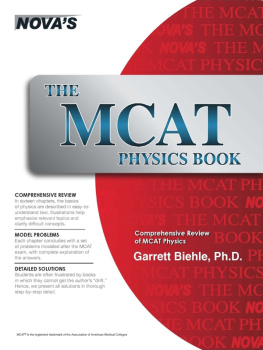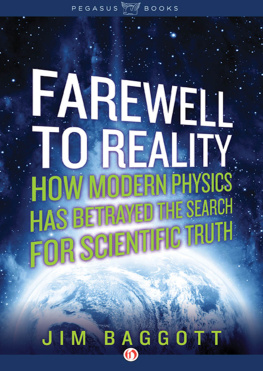Introduction H. Levy
WHEN the present international nightmare has passed, and the day of reckoning has come, Man may be able to sit down calmly to count the cost of his ignorance, his stupidity, and his social mal-organization, in terms of human suffering and social sacrifice. Not least among these will be the destruction of men of great promisein cases, amounting to geniuson the Spanish antifascist front. It was no sordid motive that drove the International Brigade to take up arms. It was alien to their nature. They were individuals with a heightened social awareness. If ever men consciously sacrificed themselves that others might live, these men did. Because they were capable of this great renunciation, and because their action was dictated by intellectual conviction, they represented the flower of our youth, alive, alert, understanding, sensitive.
Christopher Caudwell was killed in Spain. A young man still in his twenties, without great educational advantages or technical training, he has nevertheless left behind him a mass of written material of such deep understanding as to mark him out, had he but lived to enjoy the society for which he died, as one of our most gifted men. It is inevitable that there should be many such buried on Spanish soil, for it was precisely men of his quality who early realized the meaning of that desperate struggle.
What had the crisis in physics to do with Christopher Caudwell? What had the crisis in physics to do with the writer of Studies in a Dying Culture and of Illusion and Reality? In what way were these linked in his mind? In what way were they related in Nature? How could the problems of technical and philosophical significance with which modern physics was wrestlingRelativity, the Quantum Theorystir one whose mind appeared to move in a totally different plane? In what possible sense could he have anything valuable to contribute to the solution of these complex problems?
Christopher Caudwell had burrowed far beneath the surface of events. To him it was no mere accident that the struggles in the West, that had broadened so far as to involve and unsettle every European state, should also have penetrated to such depths as to obtrude themselves into every aspect of social life. When our western economy is rending itself in twain, western society challenged by what it has itself created, when the great knowledge and power which it has built up is being thrown into the deepening struggle, it is obvious also that the minds of men will scan with critical eyes as never before the logical and emotional basis of their activities and beliefs. Each in his own way, each even within his own special domain, will seek the understanding that will lead him to a way out of the greater crisis.
A period of social instability, whatever the underlying causes, must sooner or later call a halt to those ventures that can proceed only when society is moving on an even keel. A long-continued slump must arouse poverty and disquiet, not only among unemployed craftsmen and among those who might have catered for their needs, but also among that great body of executive officers of capitalism whose administrative powers are being brought to nought. The tacit assumptions, the judgments and valuations they have accepted in the past, are finally dragged to the light of day in the search for the necessary understanding. Traditions that have flowered in periods of quiescent development are cast aside, and new outlooks engendered. The minds of men are on the move. As the logic of capitalist economy works its way towards war, as the best intellectual and physical energies of communities are bent towards the creation of more and more efficient weapons of destruction, so the ethical assumptions that have been distilled from the experience of the past become frustrated and negated, and socially valuable activity is damped down. The present western economy, at the highest point of its development, can persist only in decay, only by an increasing renunciation of the best of what it has produced. It involves a denial of the freedom to expand. It cannot solve the problems it arouses. It enters a period of decline, of contraction, of frustration, of restriction.
Those who, like Christopher Caudwell, have been sensitive to all that is best in Mans creations in the past, conscious of the power Man has acquired over Nature, alive to the inner meaning of Mans achievements, revolt against this Dying Culture, against the forces that stifle progress. They strip the Illusion from the Reality. Not alone the cries of those who are destroyed to-day but the call of unborn generations sound in their ears, appealing to redeem the world while there is yet time. Every aspect of this vast struggle throws up its problem for solution, its cultural side, its aesthetic side, its scientific side. Men like Christopher Caudwell force their way to where the fire burns fiercest, and for the greatest of all causes give up their lives. The struggle has sharpened their understanding, for a sharpened understanding was necessary to ensue it; but the cost is heavy.
Before Man could act in his capacity as a physicist he had first to be a social being; there can be no science without a social background. But every society moves forward on certain tacit assumptions that, for a time at least, remain imperative, unchallenged. They are deeply embedded in the accepted outlook of the men and women who carry through its social activity. Every social problem is unconsciously approached from this standpoint. It is the origin of analysis. It is this outlook that in its time is applied towards the resolution of the scientific problems that are encountered in the effort to carry forward the work of that society. It embodies the relatively obvious, the things that cannot be questioned. From it, there are drawn images and concepts which, when pieced together as a pattern, provide the conscious theoretical groundwork of each period. On this basis, therefore, any scientific theory is necessarily the specialized development of a general social view, even although those who initiate the theory may be profoundly unaware of the connection.
From such a socio-philosophical background the scientist therefore tends, in the first instance, to arrange his theories in terms of the categories he unconsciously applies in social life. This is part of Christopher Caud-wells thesis, and if it is true it is of profound significance. In what way then does this understructure of scientific theory begin to manifest change? The pursuit of science, in the first place guided and interpreted in terms of these images and concepts, leads to a growing body of knowledge that finally must outstrip the tacit assumptions that are basic in them, no matter how deep-seated. Driven on by the necessities of practice, scientific men struggle to recreate new images-at times even doing violence to so-called common sense, in the effort to resolve their difficultiesto reconcile theory and practice. This is the first mode of change.

